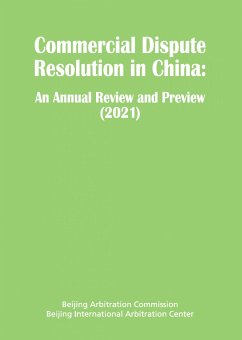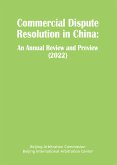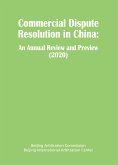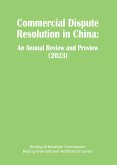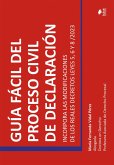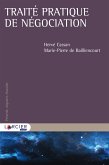2020 marked a remarkably unusual year for all, tough and impressive enough. Along with the prevalence of COVID-19 and the deepening of economic globalization, work and production in China were resumed in an orderly manner, bringing positive economic growth against the trend. In this context, commercial dispute resolutions in China were faced with new challenges and endured new reforms while embracing new developments.
The promulgation of new laws and regulations in 2020, including the Civil Code of the People’s Republic of China and the Supplementary Arrangements on Mutual Implementation of Arbitral Awards in Mainland China and Hong Kong Special Administrative Region, has elevated the arbitration system to a higher level. Arbitration institutions such as the Beijing Arbitration Commission/Beijing International Arbitration Center (hereinafter referred to as “BAC/BIAC”) carried out anti-pandemic measures in a timely manner to ensure the well-functioning of the arbitration procedures. Meanwhile, China’s judicial supervision on arbitration and arbitration disclosure have undergone impressive developments.
In 2020, the procedural standards of commercial mediation were further optimized, and commercial mediation institutions continued to expand and grow, while the number of mediation cases increased steadily. The “one-stop” diversified dispute resolution system was fully advanced, and the systems of litigation-mediation and arbitration-mediation have been constantly improved. Online mediation mechanism was rapidly developed in response to the new norms of pandemic prevention and control. Sino-foreign joint mediation mechanism has been gradually established, and international commercial mediation rules and systems are continuously refined.
While rolling out countermeasures in full scale to mitigate impacts of pandemic, China achieved some eye-catching accomplishments in terms of legal system development and dispute resolution practices in 2020.
To present an in-depth and systematic report on the 2020 practices and developments in the aforementioned fields, BAC/BIAC has called upon industry experts to contribute to the Annual Review and Preview of Commercial Dispute Resolution in China (2021) (“2021 Annual Review”), and released it in both Chinese and English to facilitate a better understanding of the status quo of China’s commercial dispute resolutions among interested parties at home and abroad. The 2021 Annual Review is compiled based on the following principles:
First, focus on the state of the art. The 2021 Annual Review strives to showcase the latest developments in relevant industries and the leading trends in legal systems and judicial practices. It selected annual hot topics for in-depth analysis, aiming to deliver timely observations and cutting-edge contents while providing detailed information thereof.
Second, focus on consistency and systematises. By inheriting previous compilation rules, the 2021 Annual Review presents an annual overview of various industries, crucial laws and policies, typical cases, analyses of heated issues and prospects, such that the readers are able to grasp the practices and developments of key industries from a multi-angle, holistic perspective.
Third, focus on practicability. The 2021 Annual Review pays attention to the pragmatic value in order to help commercial entities improve their abilities of risk prevention and dispute resolution. The Editorial Committee is composed of seasoned professionals who deliver observations and opinions based on their rich experience on the industry’s frontline, providing practical references for the readers.
The promulgation of new laws and regulations in 2020, including the Civil Code of the People’s Republic of China and the Supplementary Arrangements on Mutual Implementation of Arbitral Awards in Mainland China and Hong Kong Special Administrative Region, has elevated the arbitration system to a higher level. Arbitration institutions such as the Beijing Arbitration Commission/Beijing International Arbitration Center (hereinafter referred to as “BAC/BIAC”) carried out anti-pandemic measures in a timely manner to ensure the well-functioning of the arbitration procedures. Meanwhile, China’s judicial supervision on arbitration and arbitration disclosure have undergone impressive developments.
In 2020, the procedural standards of commercial mediation were further optimized, and commercial mediation institutions continued to expand and grow, while the number of mediation cases increased steadily. The “one-stop” diversified dispute resolution system was fully advanced, and the systems of litigation-mediation and arbitration-mediation have been constantly improved. Online mediation mechanism was rapidly developed in response to the new norms of pandemic prevention and control. Sino-foreign joint mediation mechanism has been gradually established, and international commercial mediation rules and systems are continuously refined.
While rolling out countermeasures in full scale to mitigate impacts of pandemic, China achieved some eye-catching accomplishments in terms of legal system development and dispute resolution practices in 2020.
To present an in-depth and systematic report on the 2020 practices and developments in the aforementioned fields, BAC/BIAC has called upon industry experts to contribute to the Annual Review and Preview of Commercial Dispute Resolution in China (2021) (“2021 Annual Review”), and released it in both Chinese and English to facilitate a better understanding of the status quo of China’s commercial dispute resolutions among interested parties at home and abroad. The 2021 Annual Review is compiled based on the following principles:
First, focus on the state of the art. The 2021 Annual Review strives to showcase the latest developments in relevant industries and the leading trends in legal systems and judicial practices. It selected annual hot topics for in-depth analysis, aiming to deliver timely observations and cutting-edge contents while providing detailed information thereof.
Second, focus on consistency and systematises. By inheriting previous compilation rules, the 2021 Annual Review presents an annual overview of various industries, crucial laws and policies, typical cases, analyses of heated issues and prospects, such that the readers are able to grasp the practices and developments of key industries from a multi-angle, holistic perspective.
Third, focus on practicability. The 2021 Annual Review pays attention to the pragmatic value in order to help commercial entities improve their abilities of risk prevention and dispute resolution. The Editorial Committee is composed of seasoned professionals who deliver observations and opinions based on their rich experience on the industry’s frontline, providing practical references for the readers.
